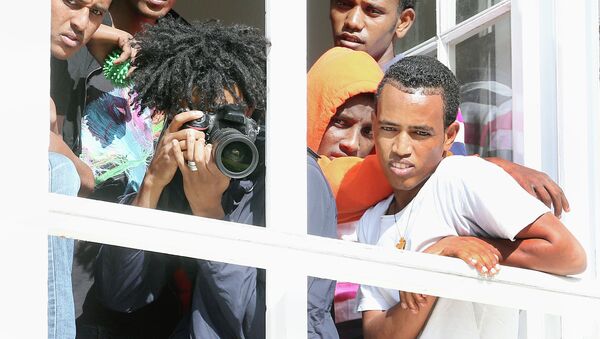So if an asylum seeker arrives, for example in Hungary or Bulgaria and is finger-printed there, then the burden of responsibility remains with that country — even if the asylum seekers moves to another country, like Germany.
Around 800,000 asylum seekers and refugees are predicted to arrive in Germany this year, the majority from Syria. German Vice Chancellor Sigmar Gabriel has described the dramatic rise in numbers as the "biggest political challenge of the coming year", accusing the EU of failing "miserably in this task".
But calls to suspend the Dublin Rules were made two years ago by the European Council for Refugees and Exiles (ECRE) and the United Nationals Refugee Agency who both urged the European Union to drop the Dublin Regulation.
In December 2013, the ECRE said: "Asylum seekers in Bulgaria reside in overcrowded and understaffed reception centers, especially since the sharp increase in applications since August 2013 mainly by Syrians".
Then in January 2014, the ECRE joined the United Nations Refugee Agency in urging EU countries to stop sending asylum seekers to Bulgaria under the Dublin Regulation.
"UNHCR considers that asylum seekers in Bulgaria face a real risk of inhuman or degrading treatment due to systemic deficiencies in reception conditions and asylum procedures in the country". The UNHCR described the reception conditions as "deplorable".
Yet two years later, Germany is the only country to suspend the rules, while Bulgaria builds a razor wire fence along its border with Turkey, Britain fences off the port of Calais and Hungary builds a 100 meter wall on its border with Serbia.
Gunther Burkhardt, director of PRO ASYL, which works to protect the rights of refugees said:
"The values of European civilization are at stake…a Europe surrounded by fences will not work."
The decision to stop all German deportations of Syrian refugees to other EU countries within the Schengen zone has been welcomed by the European Commission for its "act of European solidarity".



